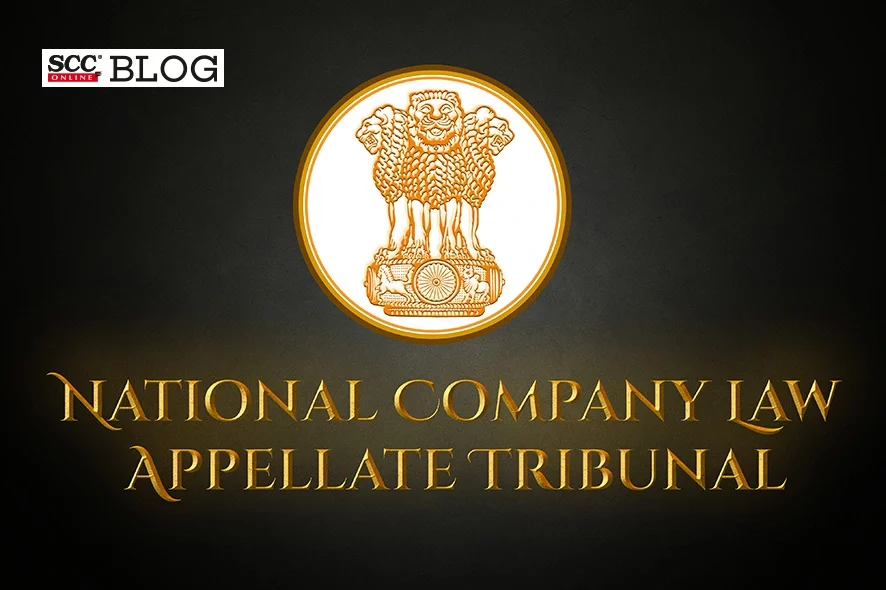National Company Law Appellate Tribunal: While deciding whether the Adjudicating Authority had the jurisdiction to impose a fine on the appellants for their non-cooperation with the Resolution Professional and Liquidator during the insolvency and liquidation process, a division bench comprising of Anant Bijay Singh, J., and Mr. Naresh Salecha* (Technical Member), held that the imposition of a fine should be dealt with by a Special Court, not the Adjudicating Authority. The NCLAT set aside the impugned order and the case was remanded to the Adjudicating Authority for a fresh decision.
Factual Matrix
In the instant matter, M/s Gupta Marriage Halls (P) Ltd., a private limited company engaged in the business of hotels, restaurants, and marriage halls availed credit facilities from Punjab National Bank. Punjab National Bank filed an application under Section 7 of the Insolvency and Bankruptcy Code, 2016 (IBC), leading to the initiation of Corporate Insolvency Resolution Process (CIRP) an appointment of an Interim Resolution Professional (IRP). During the CIRP, IRP filed an application under Section 19(2) of the IBC, alleging non-cooperation from the suspended directors.
Later, the Adjudicating Authority ordered the liquidation of the corporate debtor and appointed a new liquidator. The Liquidator filed a separate application under Section 34(3) of the Code, alleging non-cooperation from the suspended board of directors and seeking similar relief against the suspended directors.
The Adjudicating Authority combined both applications seeking similar relief. The Adjudicating Authority vide order dated 02-03-2022 imposed a fine of Rs. 5 lakhs on the appellants (suspended directors) for non-cooperation during the CIRP.
Aggrieved by the impugned order passed by the Adjudicating Authority, the appellants preferred an appeal before NCLAT challenging the same.
Appellants’ Contentions
The appellants contended that the Adjudicating Authority had no jurisdiction to impose a fine under Section 70 of the IBC. It was claimed that the impugned order was inconsistent with the IBC’s provisions.
The appellants contended that the Adjudicating Authority’s power to impose costs under Section 149 of the Companies Act was not applicable in this case. It was also asserted that the word “fine” was used in the impugned order and should be treated as a penalty.
Respondent’s Contentions
The respondent contended that the appellants obstructed the CIRP and the Liquidation Process. It was argued that the Adjudicating Authority had the power to impose costs as a means of enforcing cooperation. It was stated that the intent of the IBC’s provisions regarding cooperation would be undermined if the Adjudicating Authority could not impose costs.
NCLAT’s Assessment
The NCLAT found that the Adjudicating Authority erred in passing the impugned order and imposed a “fine” and not a “cost.” While clarifying that the distinction between a “fine” and a “cost”, the NCLAT stated that that the imposition of a fine was within the purview of Sections 70 and 236 of the IBC and that the Adjudicating Authority did not have the jurisdiction to impose a fine as it could only be done by a Special Court.
“We are clear that the intent and legal basis of cost is different from intent and legal basis of penalty which includes “fine”. Therefore, we do not have any hesitation in holding that the word “fine”, used consciously by the Adjudicating Authority in the Impugned Order, is covered in penalty which is required to be dealt under Section 70 and 236 of the Code and which further is not within jurisdiction of the Adjudicating Authority.”
Court’s Decision
While allowing the appeal, the NCLAT set aside the impugned order, and remanded the case back to the NCLT for a fresh decision. The parties were directed to appear before the NCLT on a specified date. No costs were awarded for the interlocutory application.
[Rakesh Gupta v. Mahesh Bansal, 2023 SCC OnLine NCLAT 2198, order dated 19-10-2023]
*Judgment by Mr. Naresh Salecha (Technical Member)
Advocates who appeared in this case:
Mr. Ashish Choudhury, Mr. S C Das, Counsel for the Appellants
Mr. Mohak Sharma, Mr. Supriyo Banerjee, Counsel for the Respondent






